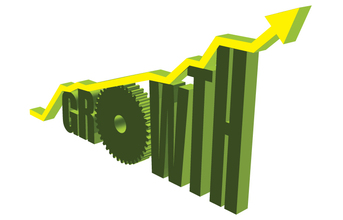
Outlook
India's GDP growth saw a temporary dip in the last two quarters of 2016-17 and the first quarter of 2017-18 due to demonetization and disruptions surrounding the initial implementation of GST. Economic activity has begun to stabilize since August 2017. India's GDP growth is projected to reach 6.7 percent in 2017-18 and accelerate to 7.3 percent and 7.5 percent in 2018-19 and 2019-20 respectively. While services will continue to remain the main driver of economic growth; industrial activity is poised to grow, with manufacturing expected to accelerate following the implementation of the GST, and agriculture will likely grow at its long-term average growth rate.
India's growth in recent years has been supported by prudent macroeconomic policy: a new inflation targeting framework, energy subsidy reforms, fiscal consolidation, higher quality of public expenditure and a stable balance of payment situation. In addition, recent policy reforms have helped India improve the business environment, ease inflows of foreign direct investment (FDI) and improve credit behavior.
The Update points to the positive impulse expected from India's novel GST system which, while remaining more complex than comparable systems in other countries, is likely to improve the domestic flow of goods and services, contribute to the formalization of the economy and sustainably enhance growth.
"India's long-term growth has become more steady, stable, diversified and resilient. In the long-run, for higher growth to be sustainable and inclusive, India needs to use land and water, which are increasingly becoming scarce resources, more productively, make growth more inclusive, and strengthen its public sector to meet the challenges of a fast growing, globalizing and increasingly middle-class economy," said Junaid Ahmad, World Bank Country Director in India.
END



























